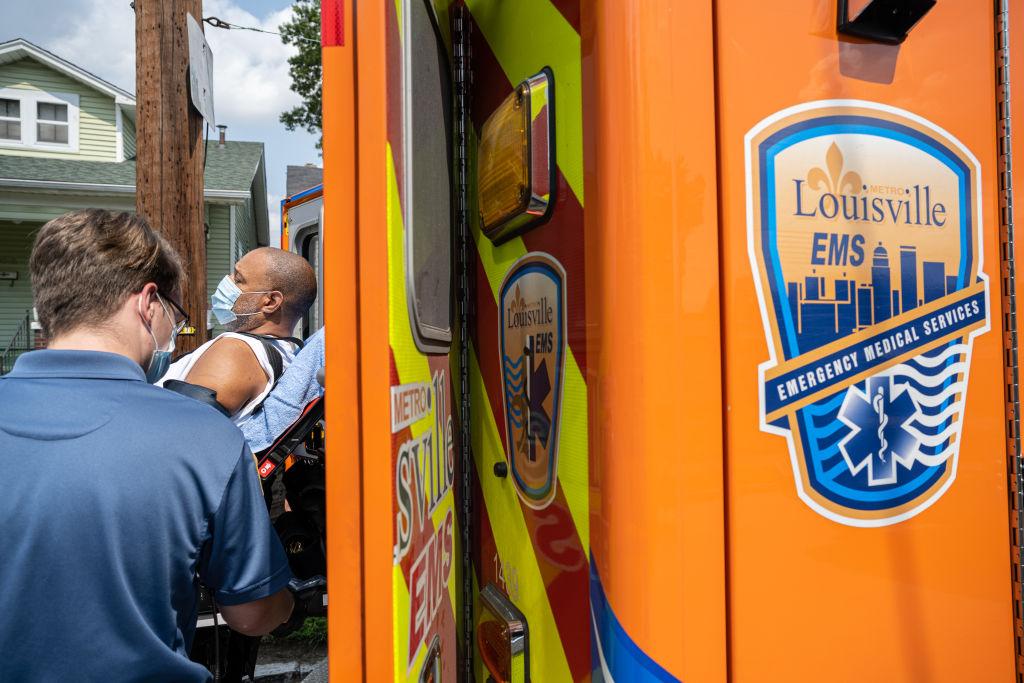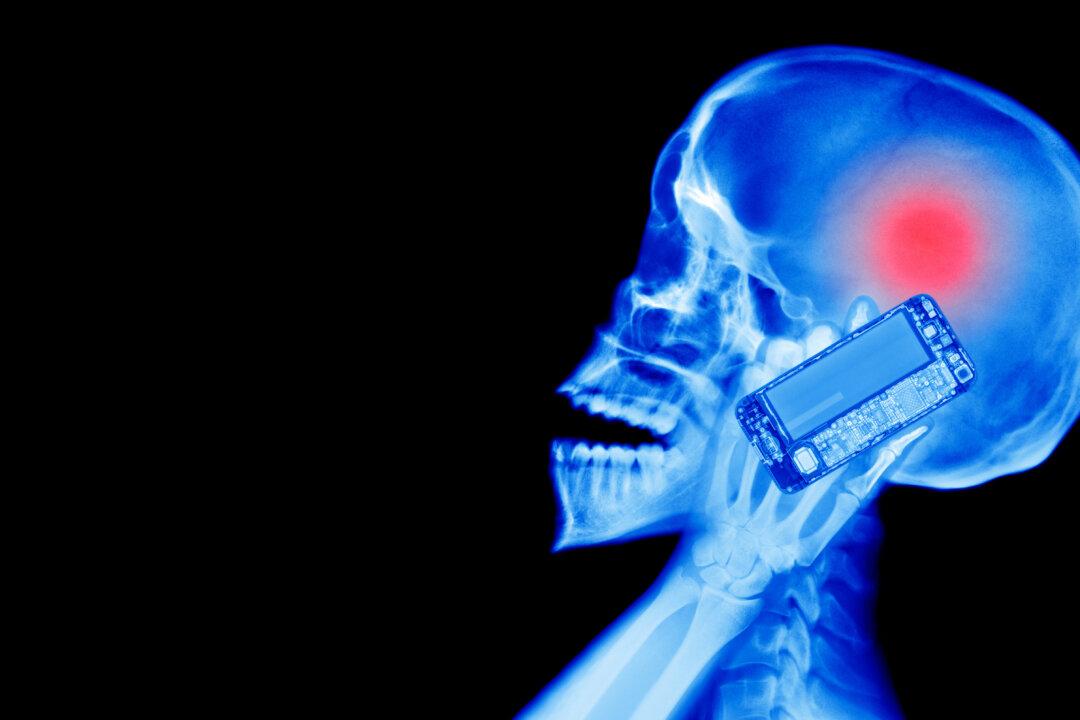A new analysis of Pfizer and Moderna COVID-19 vaccine trial data shows the risk of serious injury following the vaccine is greater than the reduction in COVID-19 hospitalizations, according to a study posted June 23 on Social Science Research Network.
Pfizer, Moderna Shots More Likely to Cause Serious Injury Than Reduce Risk of COVID-Related Hospitalization

Members of Louisville Metro Emergency Medical Services load a patient experiencing a suspected COVID-19 emergency into an ambulance outside the patient's home on September 13, 2021 in Louisville, Kentucky. Photo by Jon Cherry/Getty Images
|Updated:




